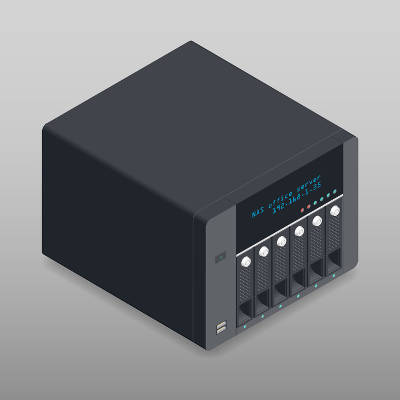
There’s plenty of terminology and acronyms used in the information technology field that may be unfamiliar at first. Take, for example, NAS. For today, we’ll explore this tech term to gain a deeper understanding of it, and how it may influence your business.
What is NAS?
NAS (pronounced “nahs”) is shorthand for network attached storage. In essence, it’s a computing device on the network with the express task of storing files and data, much like a server does. Also, like a server, this data can be accessed by anyone on the network.
Generally, NAS is better suited for personal use as a media storage solution. Utilizing one can allow a family to stockpile their entire media library in a central location, enabling anyone in the household to access the files. In this way, the NAS device acts for personal use very much like a server does for a business.
However, some businesses have found utility in implementing a NAS device as a supplement to their servers. While it can’t stand up to the power that a server provides, there are some cases where network attached storage may be handy for a business to have. Some will use it as a backup and disaster recovery solution, although this is inadvisable.
Why NAS Isn’t Great for Business Continuity
Admittedly, a backup and disaster recovery, or BDR device, is essentially a NAS device with a very specific purpose. However, this also means that the BDR device is configured in a specific way that the NAS device is not.
Therefore, it makes more sense to reach out to COMPANYNAME to inquire about setting up a true BDR solution to enable business continuity. We can also advise you on how your business may benefit more from using NAS for other means, or if there’s another solution that fits your needs better.
Give us a call at PHONENUMBER for more information.